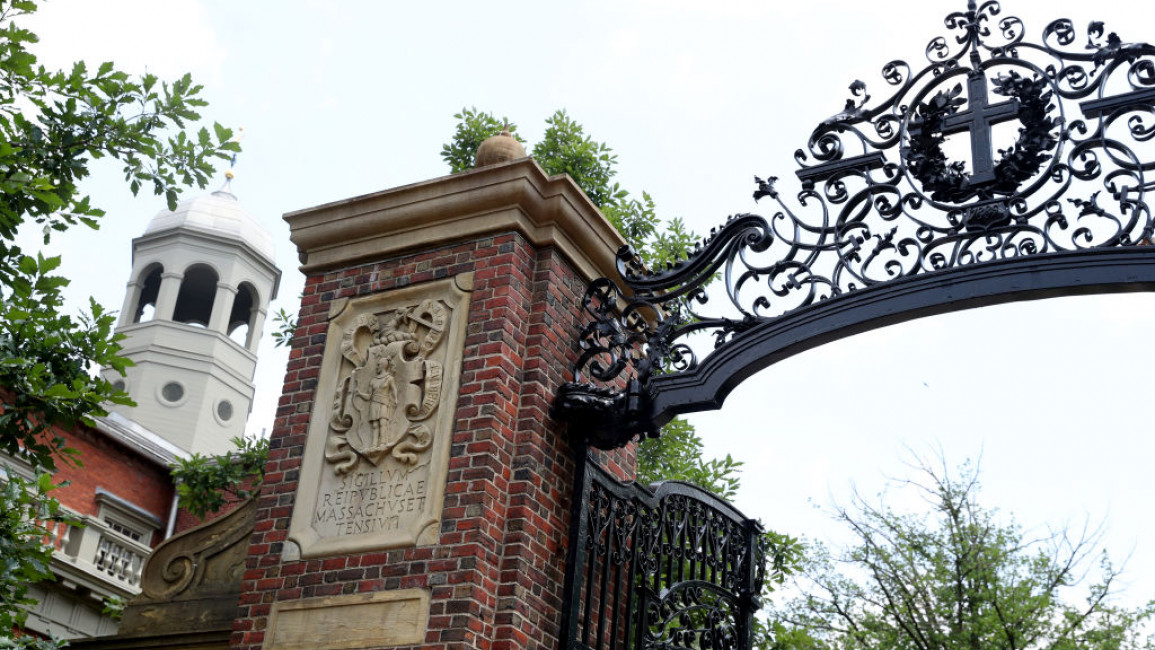Harvard Crimson Editorial Board 'proudly' throws support behind Palestinian BDS movement
The Harvard Crimson Editorial Board has “proudly” endorsed the Palestinian Boycott, Divestment and Sanctions (BDS) movement, saying the “weight of this moment…demands this step”.
The student-run newspaper published an editorial on Friday explaining how they shifted from a once “sceptical” stance to fully supporting the BDS campaign against Israeli aggression.
BDS is a Palestinian-led movement involving individuals, institutions and companies who seek to hold Israel to account for its systematic prosecution and oppression of Palestinians.
“The weight of this moment — of Israel’s human rights and international law violations and of Palestine’s cry for freedom — demands this step,” said the Ivy-league editorial board.
“We are proud to finally lend our support to both Palestinian liberation and BDS — and we call on everyone to do the same.”
JUST IN: Harvard Crimson Editorial Board throws their weight behind Boycott, Divestment & Sanction movement!
— Harvard Out of Occupied Palestine (@HarvardOOP) April 29, 2022
We owe this historic decision to the Palestinian people who resist daily the settler-colonial state of Israel and inspire us all to struggle for freedom. Onwards! pic.twitter.com/Wy6wNdVFJc
The board explained how the college’s Palestine Solidarity Campaign helped facilitate the change in mindset through education campaigns and impactful artwork.
BDS Boston posted on Twitter: "All credit to [Harvard Out of Occupied Palestine] and [Harvard Palestine Solidarity Committee] whose tireless advocacy caused this shift in The Harvard Crimson Editorial Board. Now the fight continues, to turn these words into action and dismantle Harvard's broad-scale material and ideological support for apartheid-Israel".
Havard Out of Occupied Palestine has repeatedly criticised the university for hosting individuals linked to Israeli apartheid, such as Amos Yadlin.
‼️ the Editorial Board of The Harvard Crimson released an unequivocal statement of support for BDS & “A Free Palestine.” They also reflect on their past unwise positions on BDS within the article. This is only the beginning. Full statement here: https://t.co/11F37Zed1x pic.twitter.com/xCnswnNVoX
— #FreeAhmadManasra (@m7mdkurd) April 29, 2022
The Harvard Crimson's piece said an “overwhelming power imbalance” constricted debate in relation to the liberation of Palestine, with companies facing legal repercussions in 26 US states if they decide to boycott Israel.
The Board added: “We are acutely aware of the privilege we hold in having an institutional, effectively anonymous byline. Even on this campus, many of our brave peers advocating for Palestinian liberation can be found on watchlists tacitly and shamefully linking them to terrorism.”
The BDS takes inspiration from the South African anti-apartheid movement and urges action to pressure Israel to comply with international law.



![Squad incumbent Summer Lee has won her district's Democratic primary. [Brooke Anderson/The New Arab]](/sites/default/files/styles/image_212x120/public/2024-04/413898031_1041031157158522_8195934720767720634_n%20%283%29.jpg?h=ff8c3fa3&itok=bcwEKcag)